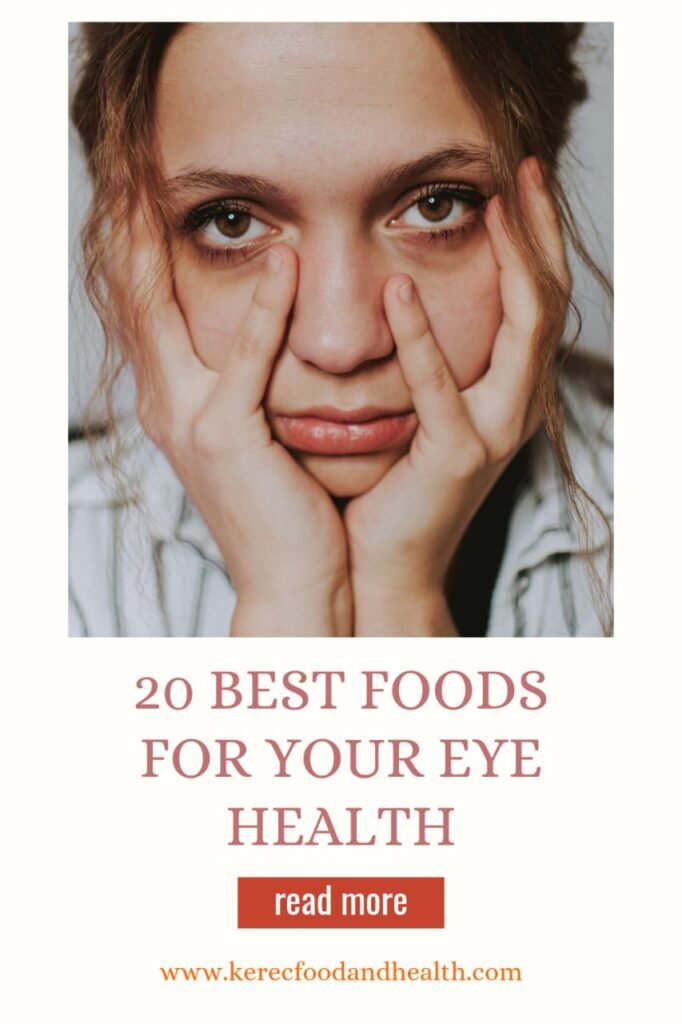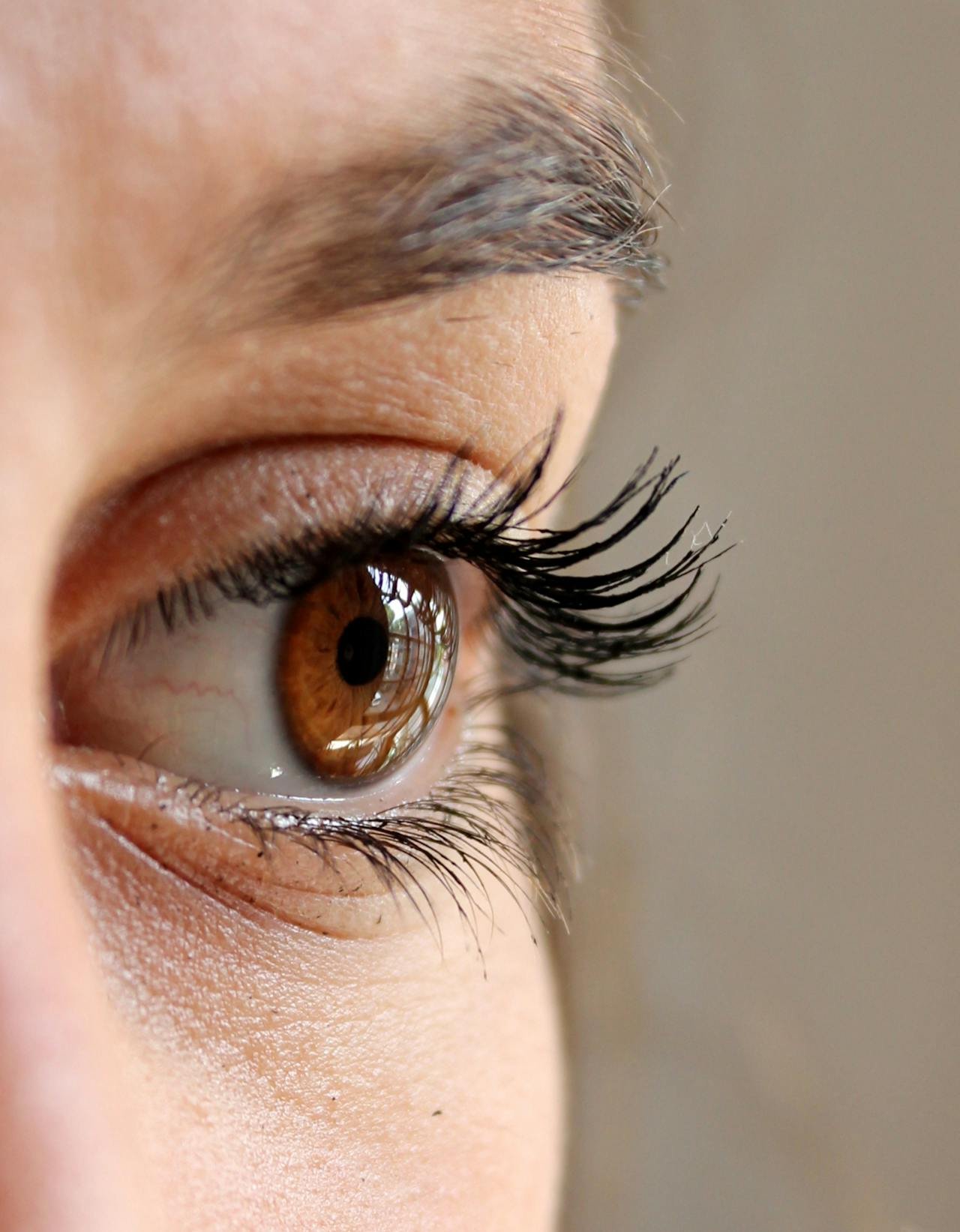When it comes to maintaining healthy eyesight, what you eat plays a crucial role. In this post, we will explore 20 essential foods that can significantly enhance your vision and provide your eyes with the nutrients they need to function optimally. Additionally, we will highlight important warning signs and symptoms of eye problems that everyone should be aware of. By incorporating these foods into your diet and recognizing potential issues early, you can take proactive steps toward protecting your vision and ensuring your overall eye health. Let’s dive into the delicious world of eye-healthy foods and learn how to safeguard your sight!

20 BEST FOODS FOR YOUR EYE HEALTH
Maintaining good eye health hinges on a balanced diet rich in specific nutrients. To promote optimal vision, consider incorporating the following foods into your meals:
1. Leafy Greens
Leafy green vegetables such as spinach, collards, water leaf, kale, and Swiss chard serve as excellent sources of antioxidants, particularly lutein and zeaxanthin. These compounds help protect your eyes from harmful ultraviolet (UV) rays. Additionally, these vegetables are rich in vitamin C, which combats age-related eye damage and maintains the health of blood vessels in the eyes.
2. Carrots
Carrots are loaded with vitamin A and beta-carotene, which the body converts into vitamin A. This vitamin is vital for good vision and may help prevent conditions like night blindness, as it is a key component of the rhodopsin protein that enables the retina to absorb light.
3. Citrus Fruits
Oranges, lemons, limes, tangerines, and grapefruits are high in vitamin C, essential for maintaining the health of blood vessels in the eyes. The vitamin C in these fruits acts as an antioxidant, protecting against age-related eye damage.
4. Fish
Consuming oily fish, such as salmon, anchovies, herring, tuna, trout, sardines, and mackerel, provides high levels of omega-3 fatty acids. These healthy fats support overall eye health and reduce the risk of age-related macular degeneration (AMD). Moreover, oily fish can alleviate dry eye symptoms, especially for those who spend prolonged periods on computers.
5. Eggs
Egg yolks are rich in lutein, zeaxanthin, and zinc, all of which contribute positively to eye health by lowering the risk of age-related vision loss. Additionally, eggs provide vitamin C and vitamin E, both of which help protect the eyes from age-related damage and reduce cataract risk.
6. Nuts
Nuts are an excellent source of omega-3 fatty acids and vitamin E, both of which can safeguard your eyes against age-related damage. Varieties such as walnuts, cashews, Brazil nuts, and peanuts are particularly beneficial for eye health.
7. Bell Peppers
Colorful bell peppers are abundant in vitamin C, beta-carotene, and vitamin E, all essential for maintaining healthy eyes.
8. Legumes
Lentils, kidney beans, green peas, black beans, and chickpeas are rich in bioflavonoids and zinc, which play a crucial role in supporting good eye health.
9. Berries
Berries such as blueberries, blackberries, and strawberries are packed with antioxidants that help protect the eyes from oxidative stress.
10. Whole Grains
Whole grains, including whole wheat, brown rice, oats, and quinoa, contain antioxidants like vitamin E, zinc, and niacin. These nutrients help protect the eyes from oxidative stress and reduce the risk of cataracts and age-related eye conditions.
11. Seeds
Almonds, flaxseeds, hemp seeds, and chia seeds provide vitamin E, omega-3 fatty acids, and antioxidants, which are beneficial for maintaining eye health.
12. Sweet Potatoes
Sweet potatoes are an excellent source of beta-carotene, converted into vitamin A in the body. This vitamin is essential for good vision, especially in low-light conditions, and it helps prevent night blindness. Additionally, sweet potatoes are rich in antioxidants like vitamin E, lutein, and zeaxanthin, which protect the eyes from free radical damage and UV rays.
13. Beef
Beef contains high levels of zinc, while chicken breast and pork loin have lower levels. Zinc is linked to delaying age-related sight loss and macular degeneration.
14. Water
Staying hydrated is crucial for eye health, as it prevents dehydration, which can reduce symptoms of dry eyes.
Strategies for Ensuring Healthy Eyes
To promote eye health, consider the following strategies:
1. Regular Eye Exams: Schedule comprehensive eye exams with an optometrist or ophthalmologist to monitor your eye health and detect any issues early.
2. Balanced Diet: Consume a diet rich in vitamins and minerals, especially those high in antioxidants like vitamins A, C, and E. Incorporate foods such as carrots, leafy greens, and fish.
3. Eye Protection: Wear appropriate eyewear, such as sunglasses with UV protection and safety goggles during activities that may harm your eyes.
4. Blink Regularly: Remember to blink frequently when using screens or reading for extended periods to prevent dry eyes.
5. Monitor Lighting: Ensure proper lighting when reading or using screens to reduce eye strain, avoiding glare by using adequate ambient lighting.
6. Take Breaks: Follow the 20-20-20 rule: every 20 minutes, take a 20-second break to look at something 20 feet away to minimize eye strain.
7. Screen Distance: Maintain a comfortable distance from screens (about arm’s length) and adjust settings for contrast and font size.
8. Stay Hydrated: Drink sufficient water to maintain overall health and eye moisture.
9. Quit Smoking: Smoking increases the risk of eye diseases; quitting will benefit your eye health.
10. Manage Chronic Conditions: Control conditions like diabetes and hypertension that can impact eye health.
11. Use Proper Eyewear: Wear glasses or contact lenses as prescribed to avoid eye strain.
12. Clean Hands and Lenses: Wash your hands before touching your eyes or handling contact lenses, and clean your lenses regularly.
13. Stay Active: Engage in regular physical activity to promote overall health, including eye health.
14. Get Adequate Sleep: Aim for 7-8 hours of quality sleep each night to allow your eyes to rest and recover.
15. Reduce Screen Time: Limit excessive screen time and take breaks to rest your eyes.
Consulting with an eye care professional for personalized advice is essential for maintaining your eye health.
Source
- Top 10 foods for healthy eyes. Zawn Villines and Natalie Olsen. April 4, 2023. https://www.medicalnewstoday.com/articles/321226#other-eye-health-tips.
- National Eye Institute. (n.d.). “What Is the Role of Nutrition in Eye Health?” NEI
- Seddon, J. M., Ajani, U. A., Sperduto, R. D., et al. (1994). “Dietary carotenoids, vitamins A, C, and E, and advanced age-related macular degeneration.” JAMA, 272(18), 1413-1420. doi:10.1001/jama.272.18.1413.
- Kesehatan, P. (2015). “Nutrition and eye health: A review.” Journal of Ophthalmology, 2015, 1-7. doi:10.1155/2015/832450.
- He, Y., Liu, X., & Zhu, Y. (2019). “Dietary antioxidant vitamins and the risk of age-related cataract: A meta-analysis.” British Journal of Nutrition, 121(3), 239-248. doi:10.1017/S0007114518003334.






Pingback: 15 Most Popular Types of Kale
Pingback: Bananas: Types, Nutrition, Health Benefits, and More! - Kerec Food and Health
Pingback: Pawpaw: Types, Nutritional Value, 9 Health Benefits, 5 Unique Recipes, and 5 Side Effects - Kerec Food and Health
Pingback: Oranges: Nutrition, Benefits, Uses, and Possible Side Effects
Pingback: Berries: Types, Health Benefits, and Its Potential Side Effects
Pingback: Strawberry: Nutrition, Benefits, Uses and Potential Side Effects
Pingback: Yellow Berries: Types, Benefits, Uses, and Potential Side Effects
Pingback: Huckleberry: Types, Benefits, Uses, and Side Effects
Pingback: 20 Warning Signs of Serious Eye Problems You Shouldn't Ignore!
Pingback: Avocado: Types, Nutrition, Benefits, Delicacy, and Side Effects - Kerec Food and Health
Pingback: Breadfruit: Nutrition, Benefits, Uses, Delicacy and Side Effects
Pingback: Build Strong Bones with These 16 Key Foods
Pingback: 10 Health Benefits of Eating Peaches You Didn’t Know About
Pingback: 10 Surprising Health Benefits of Apricots You Didn’t Know About